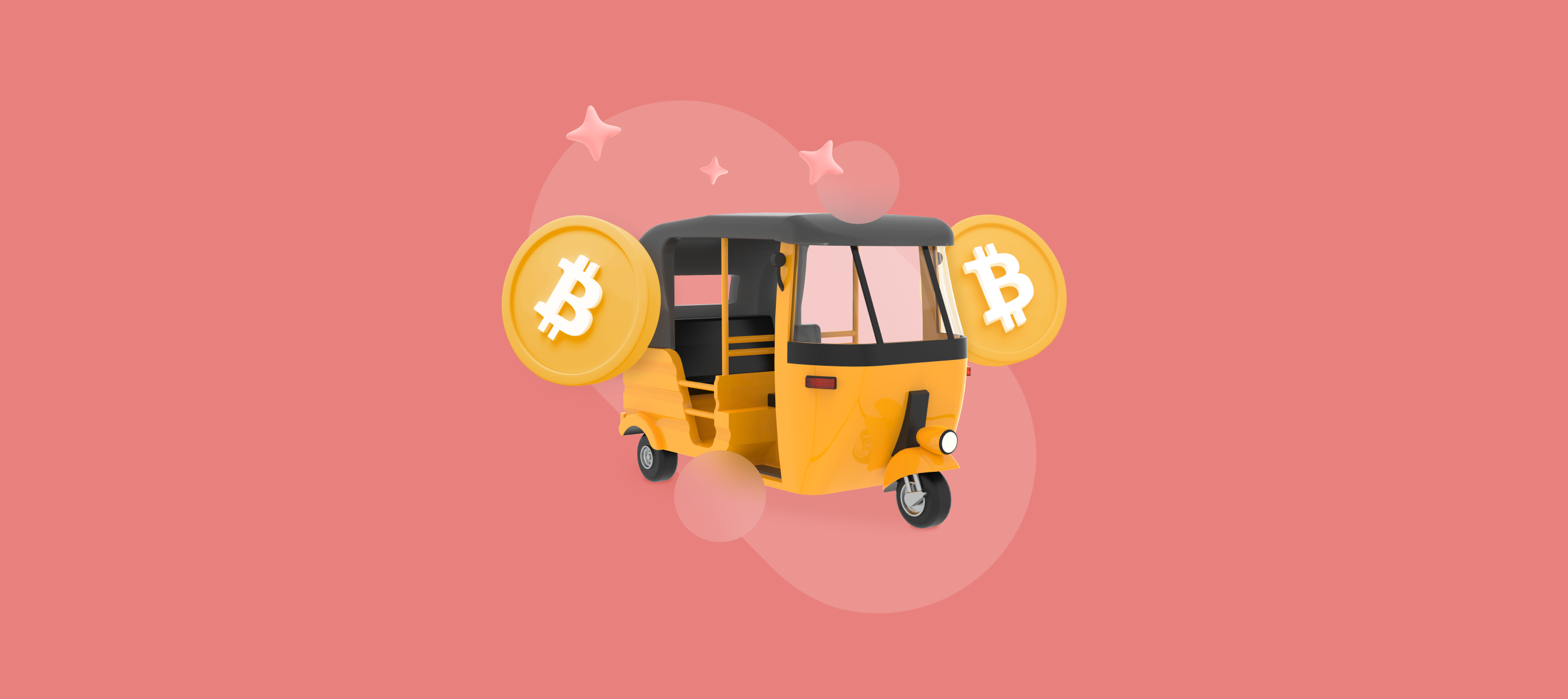Crypto In The Philippines

This blog post will cover:
- Is crypto legal in the Philippines?
- Philippine crypto taxation
- Which verticals use crypto in the Philippines?
- Crypto projects from the Philippines
- The future of crypto in the Philippines
The Philippines isn’t the first country that comes to mind as one of the largest markets for cryptocurrency in Southeast Asia.
But it might just be the next frontier for blockchain technology and digital currencies in the region as adoption in the country of 7,100 islands continues to blossom into the post-pandemic future — despite their inherent volatility and the market downturn that has thus far shown no signs of letting up.
Crypto really took hold in the Southeast Asian archipelago during the pandemic-induced isolation period, exposing tens of millions of the Philippines’ rising middle class to crypto, NFTs, and DeFi in the past couple of years. Let’s take a look at the map illustrating the current use crypto in Southeast Asia:
15% of Filipino adults reported that they hold digital assets, representing 10.9 million individuals — no small feat and no small wonder considering nearly 50% of Filipinos are unbanked or underbanked. Crypto is, without a doubt, driving more widespread financial inclusion which highlights its importance as a regional cryptocurrency hub.
Is crypto legal in the Philippines?
Cryptocurrencies are legal in the Philippines. While the country’s monetary authority, the Bangko Sentral ng Pilipinas (BSP), doesn’t regulate virtual assets per se, they do regulate virtual asset services providers (VASPs) such as local cryptocurrency exchanges and financial services entities that engage in their trade. Such entities are required to obtain licenses from the BSP.
In general, the BSP implements a “sandbox” approach to cryptocurrency regulation in the Philippines — one that doesn’t stifle fintech innovation that has served the country’s digital payments and financial services sector so well over the past decade.
Philippine crypto taxation
As of this writing, there are no Philippine laws, statutes, or specific taxation regimes regarding cryptocurrency transactions and how much they should be taxed, if at all.
Nevertheless, any income sourced in the Philippines exceeding PHP 250,000 (~US $4,500) is subject to income tax of up to 35%. Since the Philippine Securities and Exchange Commission doesn’t classify digital currencies as securities, they are taxed only when they are sold or converted into fiat currencies.
Which verticals use crypto in the Philippines?
The economy of the Philippines is highly dependent on overseas remittances; moreover, online shopping is extremely popular in the country, with many Filipinos paying for goods and services online using digital payment and online banking channels.
Cryptocurrencies are used as a means of payment more so than a market speculation tool due to their relatively lower transaction costs and their permissionless nature which requires no KYC. The latter is a benefit in a country with over 50% of unbanked persons who often do not have the necessary paperwork traditional banking institutions require to open an account.
Not surprisingly, more and more Filipinos are turning to cryptocurrencies as one of their main tools to facilitate payments and money transfers with the leading online payments services apps in the country, GCash and Paymaya, enabling crypto purchases and transfers as one of their key features.
However, besides the historic advances in crypto and electronic payments and the prevalence of remittances and online shopping, the Philippines is still largely a cash-based society. However, it’s not a reach to believe that more and more establishments will begin accepting crypto as a payment method, considering how they work extremely well with mobile banking and payments – Filipinos have a knack for mobile technology as one of the leading mobile-first nations in the world.

Crypto projects from the Philippines
The Philippines is home to several crypto projects that have received a substantial amount of funding from one of the largest venture capital firms in the space.
One of which is Yield Guild Games (YGG), a crypto startup focused on play-to-earn gaming, attracted eyes across the crypto sphere as it spearheaded the advent of Axie Infinity and its (former) popularity in the country during the pandemic. Another is BreederDAO, a blockchain startup that develops P2E NFTs to help gaming guilds further monetize their talents. Both companies received funding from Andreesen Horowitz (a16z), one of the most renowned Silicon Valley VC firms in crypto. Both startups are the most renowned and reputable crypto projects that are proudly Philippine-made.
The Philippine government hasn’t taken the broader crypto revolution sitting down, either. The Cagayan Export Zone Authority (CEZA), a government-owned and operated entity located in the northeastern province of Cagayan, launched its Crypto Valley of Asia (CVA) initiative in 2018. The project sees the construction of a crypto and fintech industrial park and entity that will be tasked with regulating, licensing, and propagating blockchain-based fintech solutions and offshore crypto exchanges in the province.
More importantly, the Bangko Sentral ng Pilipinas (BSP) announced plans of launching its own central bank digital currency (CBDC) by the end of 2022 to meet the rising demand for domestic and cross-border payment services and hasten the nation’s shift to digital payments by 2023.
The future of crypto in the Philippines
Crypto invasion is growing at an increasing pace in the Philippines at a time when the government has demonstrated its intent in exploring the potential of blockchain technology and cryptocurrencies.
Philippine retail investors hold as much as 2% of their investments in crypto. Financial analysts expect to see this figure double in the next five years as adoption continues to move forward in the country.
There’s no question that the future of cryptocurrency in the Philippines is looking up as government agencies and prominent local startups helm the movement moving forward — while virtual asset exchanges continue to experience strong organic growth.
Add to that the arrival of a new administration with considerably more technical know-how in distributed ledger technologies and virtual assets than the previous one, we can expect big things from the country known as the “Pearl of the Orient” in coming years.
Loved reading about crypto in different countries? Check out our previous articles about Germany, South Korea, Brazil, UAE, Australia, Nigeria, Mexico, India, Russia, Vietnam, USA, Switzerland, Portugal, Finland and Japan!

